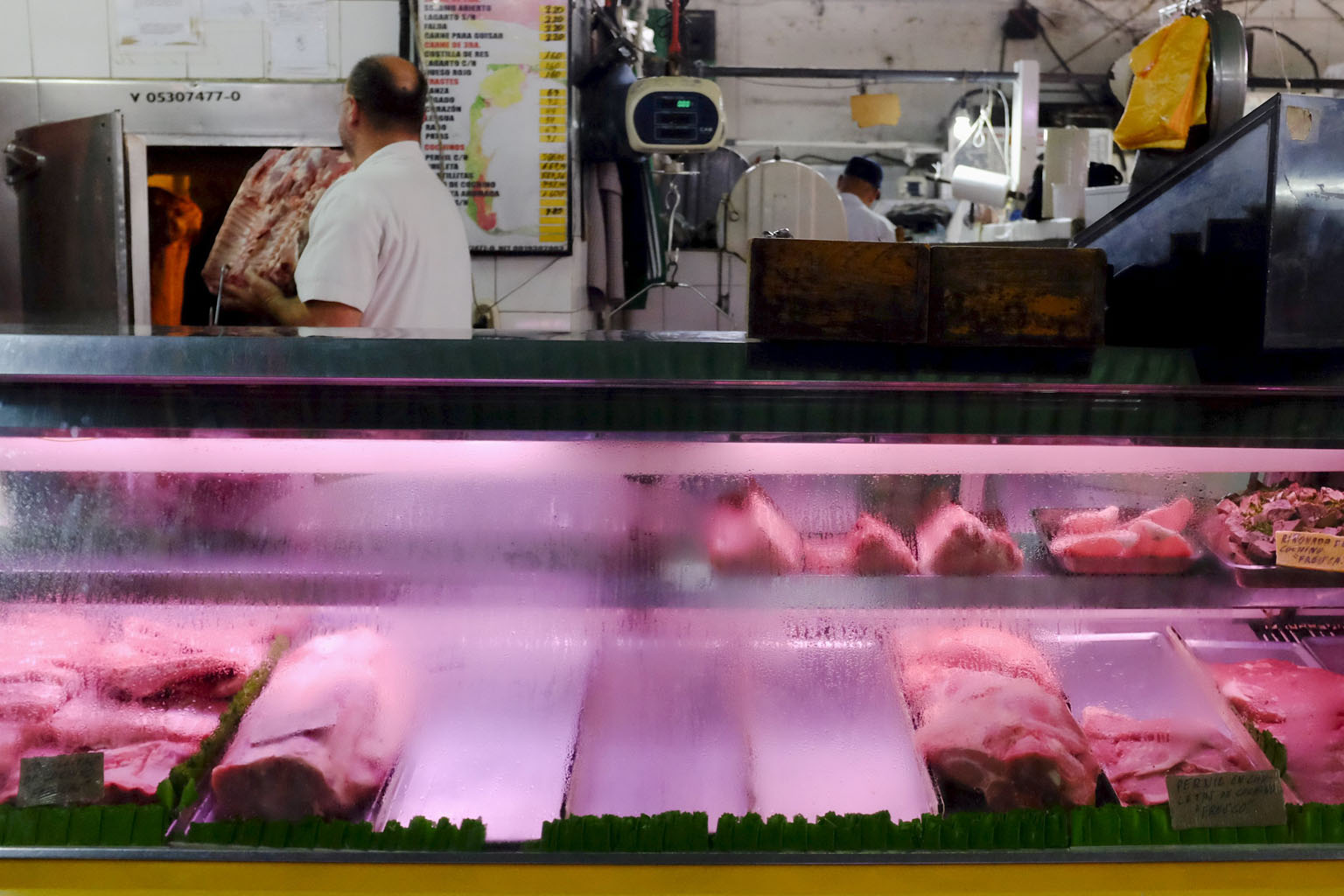Climate change
Meat the culprit
Global livestock sector is a major generator of greenhouse gases
Sign up now: Get ST's newsletters delivered to your inbox

A study has found that a global switch to diets that rely less on meat and more on fruit and vegetables could, among other benefits, reduce greenhouse gas emissions by two-thirds.
PHOTO: REUTERS
The case against eating meat usually centres on the health effects or cruelty involved in the upkeep and slaughter of farm animals, but climate change is another big reason to go vegetarian.
The livestock sector is responsible for 7.1 gigatonnes of carbon dioxide equivalent emissions a year - about 15 per cent of the global total, a report by international affairs think-tank Chatham House notes.
This is equivalent to the exhaust emissions from all the world's vehicles - cars, ships and planes.
And a growing global population is expected to add more pressure.
Demand for livestock products is set to grow by 70 per cent by 2050, according to the United Nations' Food and Agriculture Organisation (FAO).
With the Paris climate pact inked last December to limit global warming to under 2 deg C above pre-industrial levels, some believe meat consumption is one area where changes can make a difference.
Dr George Jacobs, president of the Vegetarian Society (Singapore), said besides carbon dioxide, there are other greenhouse gases, notably methane and nitrous oxide, that are associated with animal agriculture.
"By reducing our production of these gases, we address climate change more efficiently," he said.
The FAO says greenhouse gas emissions from the livestock sector can come from manure decomposition, the processing and transportation of animal products, as well as the production and processing of animal feed - which involves clearing forests to grow crops to feed animals.
The FAO also lists "enteric fermentation from ruminants" as a source. This refers to cow burps and farts, which contain methane. Methane traps more heat than carbon dioxide, and has a higher global warming potential.
A study published on Monday in the journal Proceedings Of The National Academy Of Sciences found that a global switch to diets that rely less on meat and more on fruit and vegetables could, among other benefits, reduce greenhouse gas emissions by two-thirds and avoid climate damage of US$1.5 trillion (S$2 trillion) by 2050.
Dr Marco Springmann from the Oxford Martin School at the University of Oxford, who led the study, said: "Imbalanced diets, such as diets low in fruit and vegetables, and high in red and processed meat, are responsible for the greatest health burden globally...At the same time, the food system is also a major driver of climate change."
Dr Jonatan Lassa, a research fellow from Nanyang Technological University's S. Rajaratnam School of International Studies, pointed out that more attention must also be paid to how climate change can have an impact on meat supply.
"Non-climatic factors, such as the increase in populations, urbanisation and the growing global middle-income class, are adding pressure to the demand for more consumption of animal protein."
This, he said, will place greater demands on the world's water and energy resources, which can also contribute to climate change.


